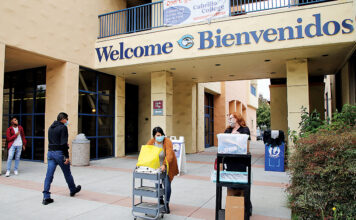The coronavirus pandemic has created a lot of uncertainty and has also put financial plans to the test. As we continue to navigate these tumultuous times, it’s important to continue to have a game plan in place for things we can control to help prepare for things that are out of our control.
Know where you stand
You should aim to be able to answer the following three questions with relative ease and accuracy: 1) How much income is coming in each month from all sources (salary, tips, gig work and side hustles, etc.), 2) How much is going out each month, and 3) How much readily available cash on hand do you have (checking, savings, CDs, money market funds, etc.)? You don’t need to know the exact dollar amounts, but you should have a general sense. If you find that your expenses are exceeding your income or you’ve experienced a reduction in income due to a job loss or reduced hours, you should look to see if there are any expenses that you can reduce or eliminate altogether. Also, take stock of things you may have accumulated throughout the years like gift cards, gift certificates, and credit card rewards/cashback. You may be able to strategically use these to offset some monthly expenses.
Also, we want to emphasize that if you have had to utilize your emergency savings or needed to use a credit card for monthly expenses but have been unable to pay it off in full because of unforeseen circumstances, that’s OK. The important thing is to formulate a plan for how you will build up an emergency fund and/or pay down credit card balances when you are able to do so and stick to it.
Get your savings and investing plan in place
A question that has been coming up recently is, should I stop contributing to my workplace retirement plan? There is not a one size fits all answer as everyone’s situation is very different. If, on the one hand, you are concerned about the stability of your job and do not have an adequate emergency cash reserve built up, it may be prudent to temporarily redirect what you were saving in your workplace retirement plan into a cash reserve account. On the other hand, if you feel your job is stable and you have an adequate cash reserve, you should continue to save what you can on a regular basis. Also, if your employer discontinues their workplace retirement plan matching program, this should not be a reason for you to stop contributing. If possible, you should consider increasing your contribution to make up for the lost employer contribution (up to annual contribution limits allowed for the plan). Although losing an employer match can be frustrating, this is potentially temporary, and once employers have more clarity they will likely revisit restarting their matching program.
Lastly, while we typically think of “investing” as contributing to a retirement plan or an investment account, don’t forget that investing could mean investing in yourself. While saving for emergencies and retirement are important, investing in yourself now could pay off in the long term. If you have experienced a job loss or furlough, consider classes or certification programs to help round out your career skills. Perhaps even a hobby that you could turn into a side business?
Gary E. Croxall, CFP® Soren E. Croxall, CFP®, CFA
Registered Principal of LPL Registered Representative of LPL
Securities and Advisory Services offered through LPL Financial, a Registered Investment Advisor. Member FINRA/SIPC. LPL Financial and Croxall Capital Planning do not provide tax or legal advice. The opinions voiced in this material are for general information only and are not intended to provide specific advice or recommendations for any individual.
Sign up to read the full article for free
Create a free account to unlock the full story.
Don’t have an account? Create one here











